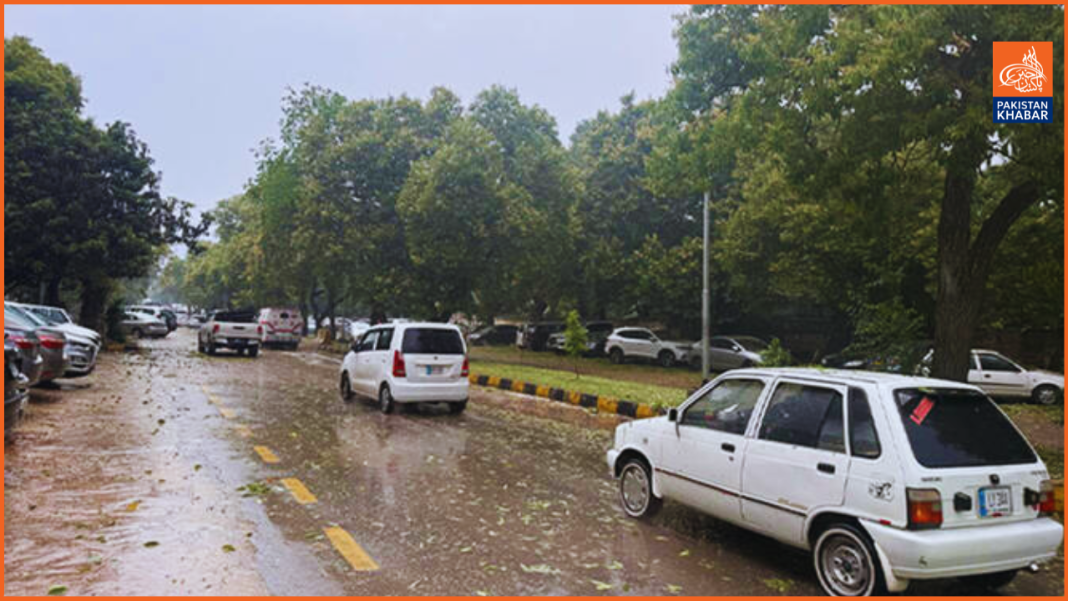A powerful hailstorm swept through Islamabad on Wednesday, leaving widespread destruction in its wake. Thousands of vehicles were damaged, and numerous homes suffered shattered windows as heavy rain and hail pummeled the city. In response, Pakistan’s National Disaster Management Authority (NDMA) issued a fresh weather advisory on Thursday, warning of further extreme weather from April 18 to 19.
According to the NDMA, strong winds, thunderstorms, and isolated hailstorms are expected to hit Islamabad and several cities in Punjab province, posing risks to transportation, infrastructure, and agriculture. Cities identified as particularly vulnerable include Lahore, Faisalabad, Jhelum, Mianwali, Sahiwal, and others in central and upper Punjab.
The NDMA cautioned that such weather conditions could lead to falling trees, power outages, and damage to weaker structures like rooftops and glass installations. Crops are also at risk, especially from large hail that can severely impact the farming sector during key harvest periods.
Pakistan remains one of the countries most susceptible to the impacts of climate change. Rising temperatures, more frequent extreme weather events, and shifting agricultural conditions have made the nation increasingly vulnerable. The situation is further complicated by the country’s dependency on the Indus River system, fed by rapidly melting Himalayan glaciers.
Meteorologists suggest that climate change may be influencing the growing intensity and frequency of hailstorms, although the science behind the connection is still evolving. Warmer atmospheric conditions are believed to support the formation of larger hailstones, leading to more destructive events.
The NDMA urged citizens to stay updated using its official mobile app “Pak NDMA Disaster Alert” and follow safety instructions from local authorities. Travelers were advised to check weather conditions and road status before setting out, while people living in landslide-prone regions were told to remain especially cautious.



